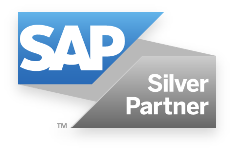The Ultimate Debrief: How Exactly Does an ERP System Save Businesses Money?

It’s a question many small or expanding businesses ask and what it really boils down to is this: how do I know if my business really needs an ERP system – and, more importantly, will it be worth the cost?
The answer to those questions depends on your business, such as how much turnover you make a year, how much benefit tighter margins and controls are to your business and how much time is currently wasted on operational matters (including if that extra time can be made a lot more useful to your business’s bottom line elsewhere).
We know you don’t want a generic few paragraphs of how it saves you money. As a business owner or operations manager you need to know the finer details before you can evaluate whether or not investing in an ERP system is the right thing for you. We believe in transparency, so that’s what we have set out to do.
So what exactly is an ERP system?
An ERP system is s type of business-management software which automates key business functions in areas such as financials, operations and human resources, often in real-time. It also allows a business to collect, store, manage and interpret data across all of these different functions within one integrated view.
This differs from what many SME businesses may have: a suite of different applications built up over time to deal with different functions such as a CRM and accountancy software that can be disjointed, with the need to switch back and forth between each system to see the real view.
The first telling signs you need an ERP system
Not every business needs an ERP system, like we mentioned previously. The first telling signs that a business requires an ERP system are commonly as follows:
- their systems are too disparate
- there is too much integration required between systems, often meaning that ongoing maintenance costs are too much to upkeep
- knowledge of existing systems broken down or poorly distributed (in this case, we sometimes have to analyse the existing system and simply recommend tweaks – new ERP software is not always the requirement, just ongoing maintenance and support)
- their business model has changed
- they have outgrown the system as their business has expanded
- they need to conform with a supplier’s systems or demands for things such as visibility
- they need to show compliance and growth to outsiders, such as investors or suppliers
And the reasons many businesses think they shouldn’t move to an ERP system
There are many reasons that businesses hold back when it comes to looking at getting an ERP system. Common ones include fears of poor installation and the solution not addressing their needs – they have likely heard of horror stories from those who have implemented an ERP system and it has not worked for them. Yet there is a world of difference between an ERP system gone wrong (often without expert help) and one implemented properly.
Others are fearful of company culture: their employees are happy with their systems and they are much too busy to train users in a new system. However, it doesn’t take a world-leading CEO to realise that the companies that get ahead in the modern age embrace change and don’t wait until they are the ones lagging behind.
Perhaps the most common objection is cost: we will not pretend that it is not a big investment. The question is, do the costs outweigh the benefits? That is a question for you to answer, which our in-depth guide below should help to address (and any decent consultant should be honest with you about whether or not it’s likely to benefit your business). However, it is worth bearing in mind that ERP solutions such as SAP Business One have been designed with SMEs in mind.
Before we move on to the ways an ERP system can save you money, here’s one thing often overlooked : sometimes the ongoing maintenance and service costs can be more than the monthly cost of an ERP system. (And that’s before any business efficiencies are taken into account.)
So, how exactly can an ERP system save you money?
The very nature of the beast is that ERP systems save you money across many different areas. However, the five most common functions it works to save money on are:
operating costs, admin costs, inventory costs, obsolete inventory and cycle time
Yet it’s worth bearing in mind that customers are just as important as cost savings to a business. Customers appreciate knowing the accurate status of their orders and getting them on time. The right ERP software can make this possible.
Here is a way that ERP system typically save businesses money across the most common functions:
Operation Costs
- Making allocation of work more efficient: Provides overall visibility of jobs and resources to allocate otherwise not possible.
- Manufacturing and material planning: Provides a view of the allocation materials and resources for production planning that businesses don’t usually have, or if they do, it usually comes from numerous places.
- Process performance: Without an ERP system there will be processes in place that may not be working but there will be no visibility of this.
Admin costs
- All customer information in one place on one customer record: Usually accounts, service and CRM all hold information but there is no link between them without an ERP system in place. This can double, treble, or even quadruple the amount of time taken to get the information and the number of admin staff need.
- No chasing paperwork, with all jobs recorded real time: Without ERP job data will be recorded on sheets and entered in a service system managed by the service department. However, all will need to then be re-entered for invoicing purposes.
- Real time view of data to answer customer queries: Usually in businesses that haven’t made the move, the operator would have to route through numerous systems or data sources to answer simple customer queries.
- Simple report mechanism, all in one place: Without ERP getting reports for management, service meetings, accountants etc will be labourious.
- Ease of scheduling and employee management for both processes and HR: Without enterprise software in place, employee information will be sat in various systems and scheduling, jobs, holidays etc will be on different systems that don’t join up. So service may have the employee booked in for jobs because they couldn’t see that HR have marked the employee as away on holiday.
Management costs
- Real time reporting and dashboards providing up to the minute analysis of the business or department: Typically in businesses without real-time reporting, teams can spend hours at the end of the week gathering information, much of which is a few weeks out of date.
- Triggers and alerts to highlight exceptions. Without this, management only know about operational difficulties after they have accumulated to become a major risk to the business
- Project overviews and statuses. Management that make do without this only get a view of true project costs after the project is completed and hours of manual data collation has taken place.
- Employee information and performance: Without an ERP system, it is difficult for management to get a full understanding of their workforce, efficiency and training requirements.
Inventory management
- Reduces over and under stocking: Without ERP the business may have a view of stock holding but will find it difficult to differentiate between good and bad stock, allocated stock and repaired stock.
- Allows for the forecasting of stock requirement . Without this there will be no predictive analytics that look at seasonal trends, year-on-year figures or other variants that affect predictive stock ordering.
- Reports on wastage, returns, swap outs, replacements and items to be returned to manufacturer. This is very important as you don’t want to be left with a warehouse black hole, with no understanding of the stock that is in it and whether it needs writing off, repairing or returning to the manufacturer.
- Gives location visibility for picking, etc. Most business without an enterprise system in place can waste hours searching for stock.
- Provides stock valuation: Without this a business will not have a true view of the stock valuation.
If you want to find out about whether or not the ERP solution we recommend for SMEs, SAP B1, can save you money, why not get in contact with our consultants and we can provide a free demo of how SAP B1 can save your business money?
{{cta(‘f0741917-cb2f-4e53-a706-dd2c9b145587′,’justifyleft’)}}

